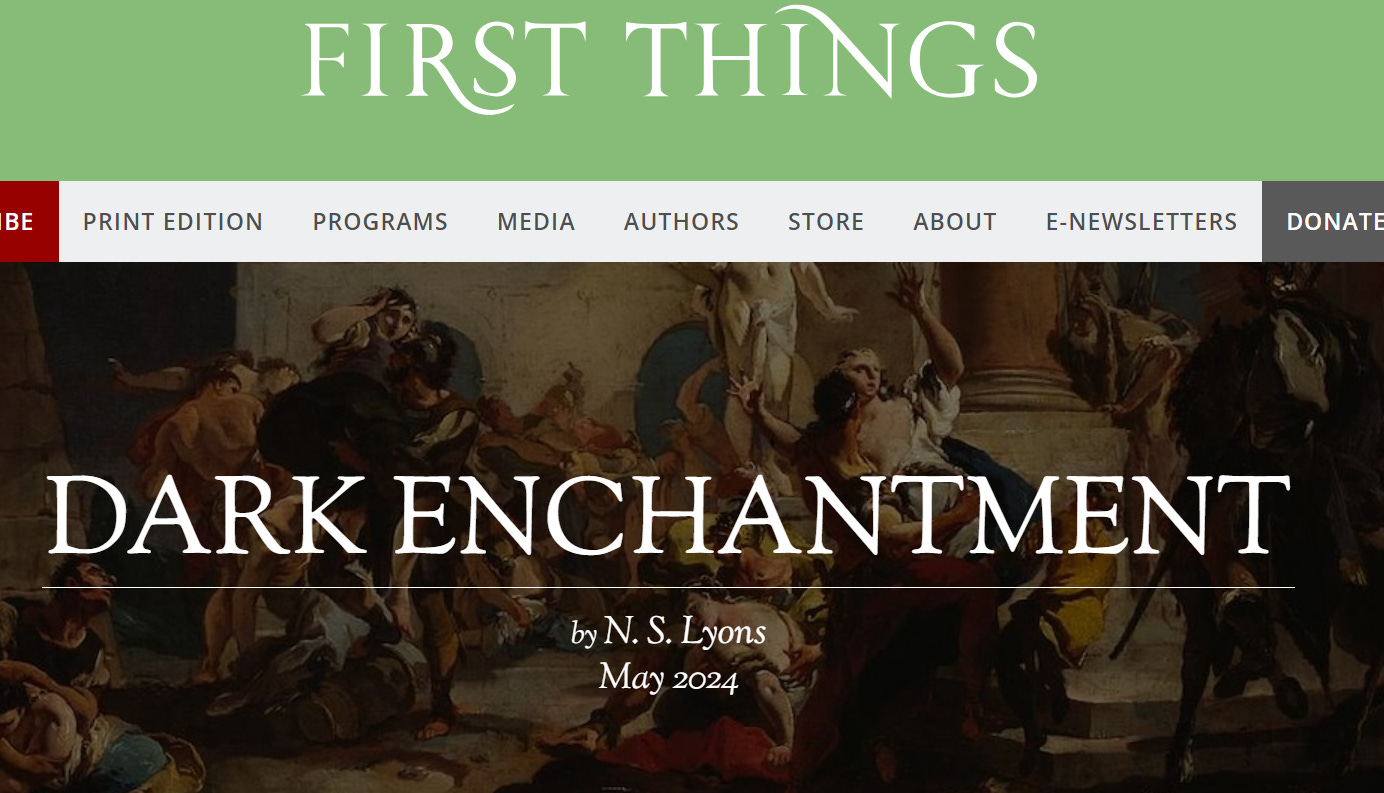Heads up to readers that I have an essay out in the new issue of First Things magazine. You can read it online here (for free, as long as you haven’t already read more than 3 articles this month):
https://www.firstthings.com/article/2024/05/dark-enchantment
Partially a review of John Daniel Davidson’s new book Pagan America, it explores the notion that we are currently experiencing a societal reversion from Christendom to paganism – a thesis that, for various reasons, I find not entirely convincing.
Our dim and pallid modernist world could not be more different from the pagan’s. Here all has been reduced to mere matter, moved about by the collision of atoms. There is no meaning in the wind. There are no spirits in the trees nor stories in the stars. We can no longer see them. Nor for most of us does God seem, as the early Christians felt deeply, to permeate each breath and every stone of creation with his energy, present at once in all things and beyond all things. Ours is a profane, mechanistic world—a dead world, in which the vast majority of us have, perhaps literally, lost the ability to perceive that it is still alive. Instead, in our drab materialism, most of us live in a kind of self-imposed virtual reality, obsessed with predictability and technocratic control.
Nonetheless, after dragging in C.S. Lewis and Oswald Spengler for a bit, I conclude that “something” sure does seems to be happening to the zeitgeist. The winds of change are now in the air . “The whole edifice of modernity is in crisis,” as I put it, with materialism under challenge everywhere. But this, I argue, should be as much a cause for hope as for fear.
I will be at NatCon Brussels from Tuesday to Wednesday next week. The dissident pro-democracy conference should go forward despite the best efforts of the communist thugs who runs Brussels to cancel the event.
So if any of you will be there let me know if you’d like to meet up, and I’ll see what I can do.





I know it’s not exactly the point, but this is such beautiful writing.
That's a great arlicle. Myself, I think of paganism as the sense that the world is alive with various gods and daimons (some good some bad). In a way, Christianity separated spirit from the flesh and made God a distant figure. Divine order needs to come back down to earth in human form. Christ did this but left, leaving His followers waiting for His return.
There's always been this strain of iconoclasm in Christianity. The fear and hatred of images, and of the body. But the Greeks were able to make images that could aid in the manifestation of divine beings, alive but more perfect and, simultaneously, from another world.
Great poetry is called a fine madness. Culture is what's left over after you forgot what you tried to learn. It's instinct, but a learned one. As Europeans we need to return to a more instinctive view of the world and ourselves, and the old gods can help us.